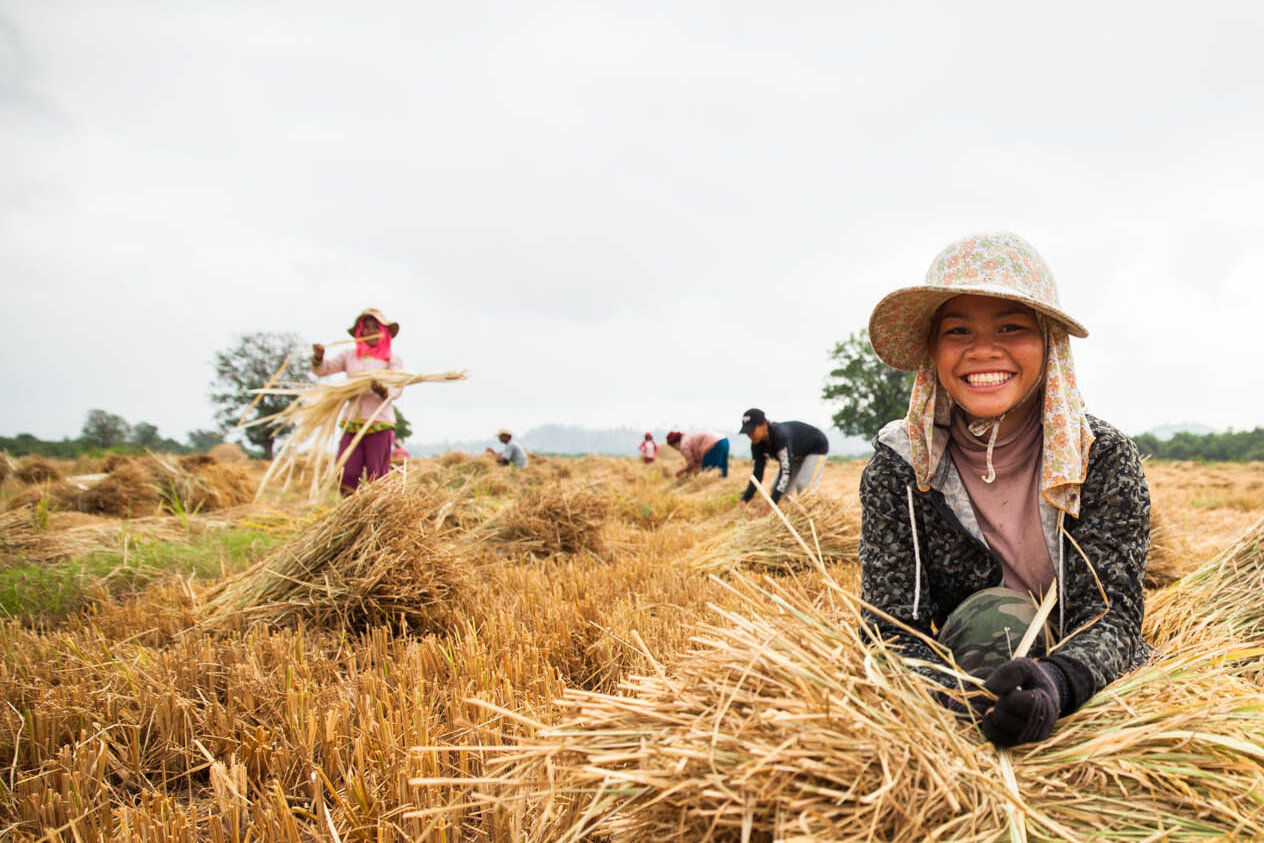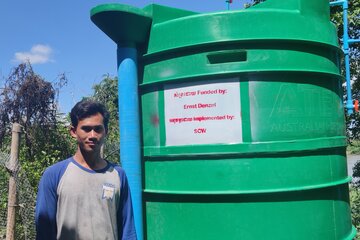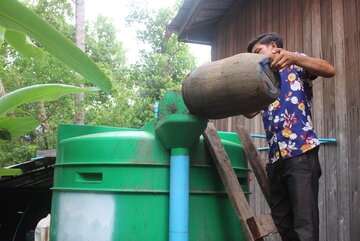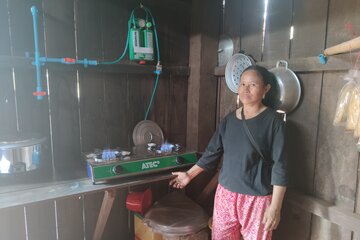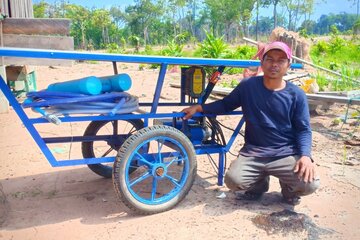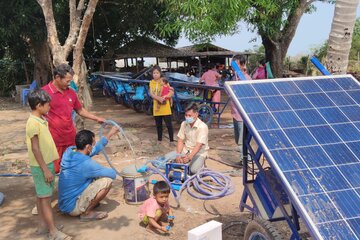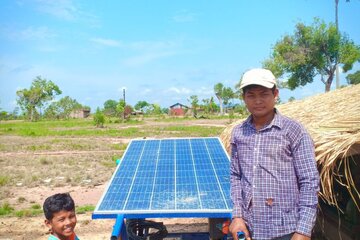Cambodia: Leap in income thanks to climate smart agriculture techniques
Berlin / Phnom Penh, 19 August 2021
Thanks to training farmers in climate-smart, yield-increasing agriculture methodologies, they were able to increase their agricultural yields while saving money at the same time. In addition, the skills they learned help to protect natural resources and the climate. Learning from previous projects, our partner organisation Save Cambodias Wildlife (SCW), promotes System of Rice Intensification (SRI), along with climate smart technologies including biodigesters and solar pumps.
The distribution of bio-digesters and solar pumps ensures that vulnerable households have an improved quality of life, with access to electricity and safe cooking options. The use of this technology also prevents further deforestation, and households no longer need to spend time or funds purchasing fire wood; and can instead prioritise education, medical or other expenses. "We now save time, have fewer expenses and practice organic farming," Ora Chantha, a biodigester recipient, summarizes. "Since my family has been running a biodigester, our health has been less affected and the risk of fires has decreased," adds the 29-year-old woman. On her property, there is a closed plastic tank in which biogas is produced through fermentation processes. It produces enough gas to cook the majority of meals safely and cleanly. The family is among 31 households that have had such a system installed in recent months, powered by manure and other organic products.
Solar powered water pumps for irrigation
Another 44 families received solar-powered water pumps. This will enable them to not only fill the water tanks at their homes, but also to irrigate their gardens and fields. With rainfall becoming increasingly irregular, this secures their own supply and saves time and energy. Long distances to water points are no longer necessary and time is saved for other income generating activities which can benefit the family.
The rural population of Cambodia in particular lives in poverty. The agriculture sector is particularly vulnerable to climate change as agriculture is highly dependent on consistent temperature ranges and water availability, which are what climate change undermines. Climate change has exerted increasing pressure on natural resources and biodiversity in rural areas and has adversely impacted rural livelihoods and reduced capacity for climate change adaptation and mitigation.
With 80% of Cambodians living in rural areas, climate smart interventions such as those undertaken by SCW continue to be relevant and impactful.
The implementation of varied climate smart activities by our partner organisation SCW has produced very strong results after just one year. Almost all targeted families in the village of Vern Say said that they were implementing the climate smart methods and that their monthly disposable income had grown significantly, because they no longer have to buy gas or electricity due to the use of the bio-digestor. What might sound little is an enormous gain in security for families in Cambodia.
